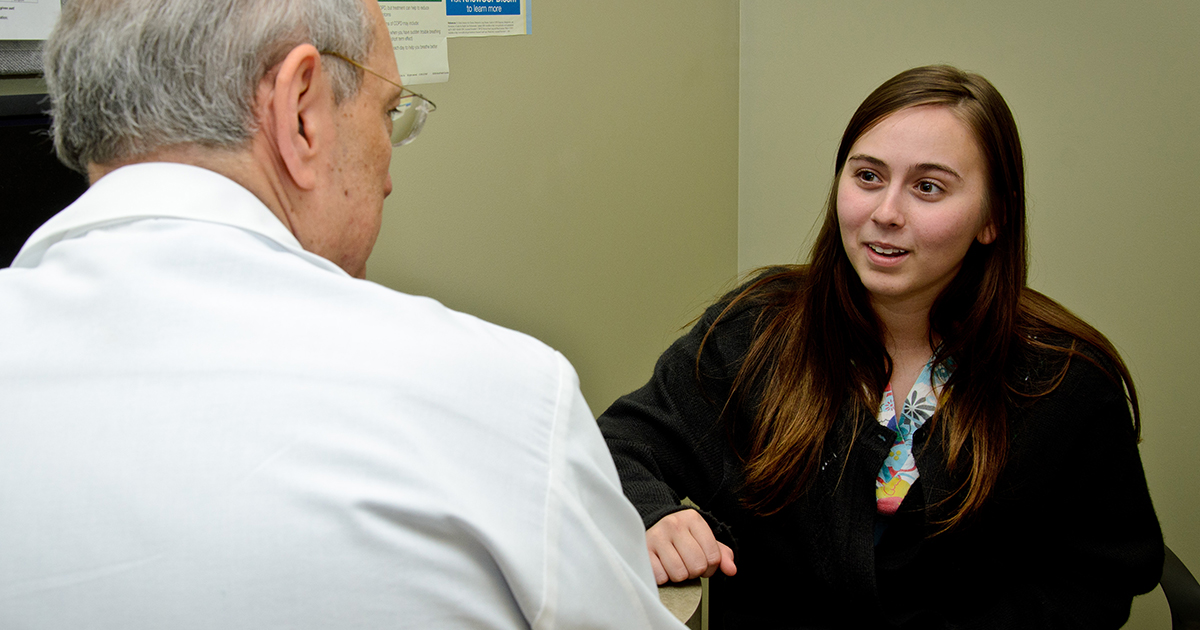
Knowing your family’s health history is important for your future care
A family health history helps physicians and other health care professionals provide better care for their patients.
“We inherit our genes from our parents. For example, physical body appearance or if there are any risks for certain medical conditions or illnesses,” said Kashif Zaheer, MD, a family medicine specialist at OSF Medical Group – Primary Care in Belvidere, Illinois.
“Having a complete family health history helps physicians find any patterns of certain medical conditions in a patient’s family. It helps in the management of the patient’s own health, including identifying what preventive care and screenings may be necessary,” Dr. Zaheer said.
General background
In general, the history should include incidents of chronic diseases – such as heart disease, stroke, cancer, mental health issues and alcoholism or other substance abuse – for first-, second- and third-degree relatives. The age of death for all relatives and the family’s ethnicity – or ethnicities – also should be included. In addition, the history should include more specific information about the patient, such as their illnesses, chronic conditions, medications, supplement use, past surgeries and treatments, pregnancies, miscarriages, stillbirths, birth defects and fertility issues.
Dr. Zaheer also believes in delving a little deeper into genetic, environmental or social factors that may impact a patient’s health care needs.
“In addition to knowing the medical background, it’s important to have as complete of information as possible about both of your parents, including if they have immigrated from a certain country or region,” he said.
How a doctor uses the information
“Having this history helps us, as providers, identify, understand and educate a patient about their higher risk for certain conditions and develop a plan to help reduce or modify the risk,” Dr. Zaheer said. “A family health history can help provide early warning signs of disease and direct us in prescribing more frequent or earlier screenings, such as mammographies or colonoscopies.
“It can help them understand why we encourage regular checkups or testing if they have a medical condition that runs in their family,” he said. “We also can use the history in recommending lifestyle changes, such as adopting a healthier diet, getting regular exercise and quitting smoking.”
Take advantage of time together
“The best way to gather family history information is during shared holidays or reunions,” Dr. Zaheer said. “Share your purpose with your family members. Have a dialogue so they understand it’s not about predicting the future of their health, but is used to help identify the risk for certain health problems.”
If you are adopted, Dr. Zaheer suggests asking your adoptive parents if they have any information about your biological parents that they can share with you.
Online tools
Learn if you’re at risk
A number of online tools and questionnaires from trusted sources can help assist you in collecting your family health history, Dr. Zaheer said.
“My Family Health Portrait” a tool from the Surgeon General and hosted on the website of the U.S. Centers for Disease Control and Prevention allows you to enter your family health history, learn about your risk for conditions that can run in families and print out your history to share with your doctor.
The American Medical Association (AMA) has questionnaires and other resources to help you in collecting, creating and understanding the importance of knowing your family health history.
Keep your info up-to-date
“Your personal health information needs to be up-to-date and you need to share any changes with your primary care provider,” Dr. Zaheer said.
If you are in need of a primary care provider, visit the OSF HealthCare online directory to find one near you.